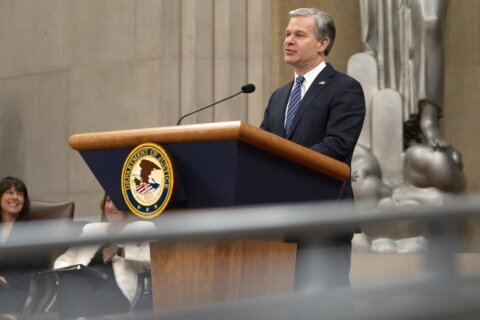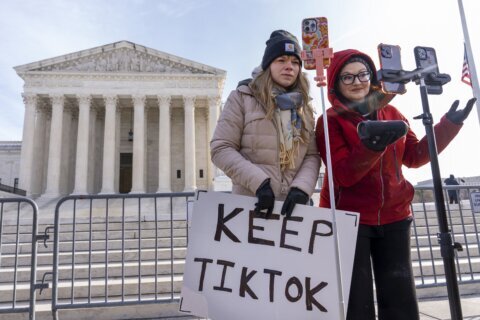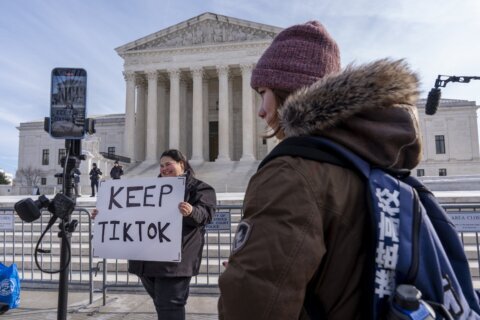Election cycles can trigger market volatility, as uncertainty over who may be shaping public policy in the White House and Congress causes some angst on Wall Street. The stakes may feel even higher this election year as former President Donald Trump squares off against Vice President Kamala Harris.
Many retirement investors are taking defensive positions ahead of election day. According to Betterment’s 2024 Retail Investment Survey, 40% of investors surveyed said they will either move or pull investments at some point before Nov. 5.
As investor anxiety rises ahead of election day, here’s how retirement savers can protect their portfolios from outsized volatility:
— Consider the current market landscape.
— Resist extreme portfolio moves.
— Don’t rely on so-called “safe money.”
— Don’t stop investing due to an election.
— Ignore the noise.
— Focus on portfolio management.
Consider the Current Market Landscape
History shows that consumer spending and economic growth ebb and flow, and that happens in and out of election years.
“Stock markets have historically rewarded investors with equivalent long-term returns irrespective of which party was in the White House,” said Greg Warner, chief investment officer at Adero Partners in San Francisco, in an email. “While there can always be short-term volatility, the long-term economic dynamics of consumer spending — a primary driver of economic growth — help underpin the stock market.”
[READ: Is a 60/40 Portfolio Appropriate for Retirees?]
Resist Extreme Portfolio Moves
Savvy retirement investors know the market is a long-term game and will not make significant moves as a result of election jitters.
“If you’re retired or soon to retire, you should have already done or begun to dollar-cost average out of the market and have the appropriate risk-tolerant buckets,” said Dan Casey, investment advisor at Bridgeriver Advisors in Bloomfield Hills, Michigan, in an email. “If you feel a market crash would be detrimental to your portfolio, then you don’t have the proper buckets set up.”
Don’t Rely on So-Called “Safe Money”
No particular stocks or funds hold up well during an election period. “Each election has such unique issues that it’s hard to pinpoint any fund or sector that will do well. The one major difference in this election period that others haven’t seen in decades is that ‘safe money’ pays fairly well, at around 5%,” Casey said, referring to investments like certificates of deposit. However, if that was your go-to strategy in the past year, you severely underperformed the market and barely kept up with inflation.”
[Related:How Retirees Can Cope with Inflation]
Don’t Stop Investing Due to an Election
Taking a wait-and-see approach with your portfolio is not advisable, market investors say.
“Don’t procrastinate on important financial moves like saving more or updating your investment strategy because you’re waiting to see how the election shakes out,” said Steven Kibbel, a certified financial planner at Prop Firm App in Nashville, Tennessee, in an email. “Stick to your plan and keep doing the boring but important stuff like maximizing your 401(k) contributions and avoiding credit card debt,” he said.
[READ: IRA Versus 401(k): Which Is Better?]
Ignore the Noise
Historical precedent suggests market hyperbole, not volatility, will be in high supply.
“Going back to 1928, there have been only four times when the markets declined during an election year, and the seeds for those corrections, such as the tech bubble and credit crisis, were independent of the election itself,” said Thomas J. Raymond, investment management partner at Callan Family Office in Conshohocken, Pennsylvania, in an email. “That’s why patience and perspective are always key to navigating bouts of higher volatility. Market downturns, on the whole, aren’t worth losing sleep over.”
Market pullbacks are much more commonplace than one might think. Since 2009, there have been 29 pullbacks when the S&P 500 fell 6.5% or more, Callan said. “Each felt like an impossible moment, including many politically driven sell-offs. Yet each had a temporary market impact.”
On Jan. 1, 2009, the S&P 500 opened at 903; today, it sits at around 5,600. “That would have been more than a six-time return on one’s money had you stayed invested, including the all-too-common harrowing moments of the past 15 years,” he added.
Focus On Portfolio Management
It never hurts to review your portfolio and see if it needs some rebalancing, especially if you’re worried about election-driven market volatility. “For those nearing retirement, you may want to gradually shift more money to conservative assets like bonds to protect what you’ve built,” Kibbel said. “If you’re younger, you can likely afford to ride out election-related turbulence and keep a larger share in stocks for long-term growth.”
Everyone’s situation differs, so consider meeting with a financial advisor for personalized advice.
“The key is tuning out the short-term election noise and focusing on the financial plan that matches your unique retirement vision. That’s how you win in the long run,” Kibbel said.
More from U.S. News
If You Put $7K Into an IRA, How Much Money Could You Earn?
IRA Rules: Contributions, Deductions, Withdrawals
How to Reduce Your Tax Bill by Saving for Retirement
How to Protect Your Retirement Savings in an Election Year originally appeared on usnews.com









